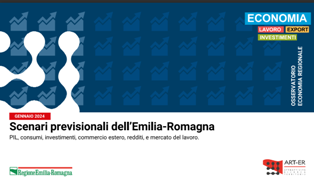- A
- B
- C
- D
- E
- F
- G
- H
- I
- J
- K
- L
- M
- N
- O
- P
- Q
- R
- S
- T
- U
- V
- W
- X
- Y
- Z
This proposal aims at the development of a connected interregional innovation ecosystems between 5 EU regions (i.e., Toulouse, South Holland, Madrid, Apulia, and Emilia-Romagna) with different innovation readiness levels but a shared interest in fostering aerospace innovations and sectors.
The main objective of AdriaClim is to improve climate resilience in the cooperation area, by increasing the capacity to develop new climate adaptation plans and update existing ones and develop mitigation strategies based on high resolution, more accurate and reliable climate information (observations and integrated modeling) focussed on the coastal and marine areas (threatened by risks such as sea level rise, sea temperature and salinity anomalies, coastal erosion and salinization of freshwater) and related economic sectors and ecosystem services.
The AI-REGIO project aims at building and alliance between DIHs and running initiatives (Vanguard Initiative, S3 Platforms, AI4MS,...), involving industry and service providers, to foster and facilitate an AI-driven digital transformation for SMEs and Big Companies. Starting from already running services for industry, AI-Regio aims at create a network to share services and competencies across Regions.
COVID-19 had a major impact on how we live our lives. How we manage resources has never been more important. A strong recovery from the pandemic should be a green and sustainable recovery and circular economy is a critical element. The additional activities of CESME will help in this direction by exchanging experience and achieving policy changes that will support the recovery of business and economy sectors through the adaptation of CE.
The project will developed in 3 main stages.
The goal of FactoRIS II is to further support the case-specific digital transformation of RIS based SMEs by evolving existing production facilities towards Industry4.0. This will be achieved by developing and networking established learning factories, providing modular testbed demonstrators for acute and real manufacturing problems, and adopting and sharing innovative education and training concepts with SME stakeholders. Emphasis will be on technology solutions for smart manufacturing ecosystems, where e.g.






